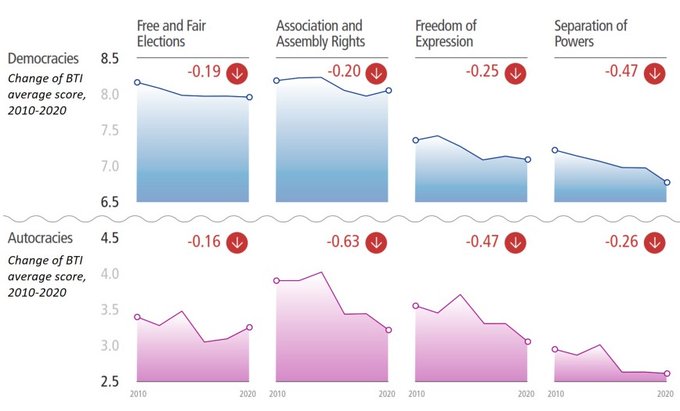
Bertelsmann Foundation
Hungary’s restrictions on the financing of civil-society organizations are unlawful, the European Union’s highest court ruled on Thursday, in a resounding rebuke to Prime Minister Viktor Orban over measures that experts have denounced as an attempt to stifle criticism of his administration, The Times reports:
The European Court of Justice found that a 2017 law that required nongovernmental organizations that received foreign financing to identify themselves as such and to disclose their donors had “introduced discriminatory and unjustified restrictions.”… The country’s drift toward authoritarian rule has left critics with almost nowhere to turn at home, and the court in Luxembourg and other European Union institutions among the few remaining avenues to challenge the government.

Credit: Visegrad iInsight
“Normally, in a democracy there are avenues to remedy rights infringements,” said Petra Bard, an assistant professor at ELTE School of Law in Budapest and a visiting professor at Central European University. “But in a society with state capture, these checks no longer function well, so external checks become more important.”
A coincidence of crises marks our era as one of profound change and uncertainty, an era that Johan Schot, Professor of Global History and Sustainability Transitions at Utrecht University, has called an era of deep transition, say analysts Clodagh Harris and Ian Hughes.

21st Forum 2000 Conference
Given the dangerous erosion of democracy in many places, we must re-imagine democratic institutions to be more inclusive, participatory and deliberative. Democracy’s capacity for critical self-reflection on the part of its citizens, together with its capacity for self-renewal, is what makes it the best defense we have against toxicity and pathology, they write for Democratic Audit.
What are the underlying causes of democratic erosion, and how do we counter this trend? Join a discussion on June 25 at the Bertelsmann Foundation. Register here for the first session of the BFNA/BTI webinar series “Troubling Trends in Transformation”.







